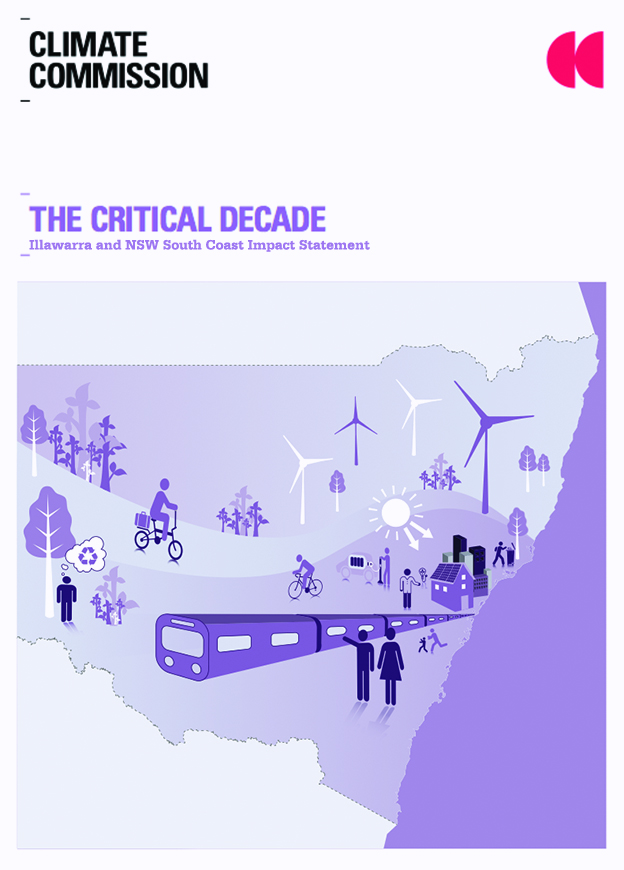This content is more than 9 years old
The climate in NSW is already changing and is likely to continue to do so in the future.
The climate in NSW is already changing posing significant risk to the State. As a result of the landscape and habitats present the Illawarra and South Coast regions are particularly vulnerable. This document accompanies The Critical Decade report and highlights the key impacts for the region.
FOUR KEY POINTS:
- Higher temperatures will increase the likelihood of large and intense bushfires. The average temperatures in NSW have steadily increased by 1 degree since the 1950’s and the number of extremely hot days has increased across Australia. In Nowra the Forest Fire Danger Index increased by 30% from 2001-2007 relative to 1980-2000 and is likely to continue to increase. The conditions necessary for large and intense fires such as those that allowed for the 2001 Black Christmas fires are likely to become more common with intense fires projected to increase by 20%.
- Rising sea-levels will exacerbate existing vulnerability of coastal towns and infrastructure in the Illawarra/South Coast regions. Global sea-levels have risen by 20 cm since the 1880’s and will continue to rise in the future, contributing to a increase in coastal flooding. These floods are likely to damage towns, cities and support infrastructure in low lying coastal areas. Hundreds of commercial buildings in the Wollongong and Shoalhaven areas are at particular risk.
- Changing rainfall patterns and the risk of more intense rainfall events pose challenges to low-lying urban centres in the Illawarra/South Coast regions.
- Biodiversity will be at risk. The Illawarra region is home to 69 threatened animal species and 31 threatened plant species. These species are particularly vulnerable to the additional stresses from climate change such as higher temperatures, increased intense bushfires and changing rainfall patterns.
